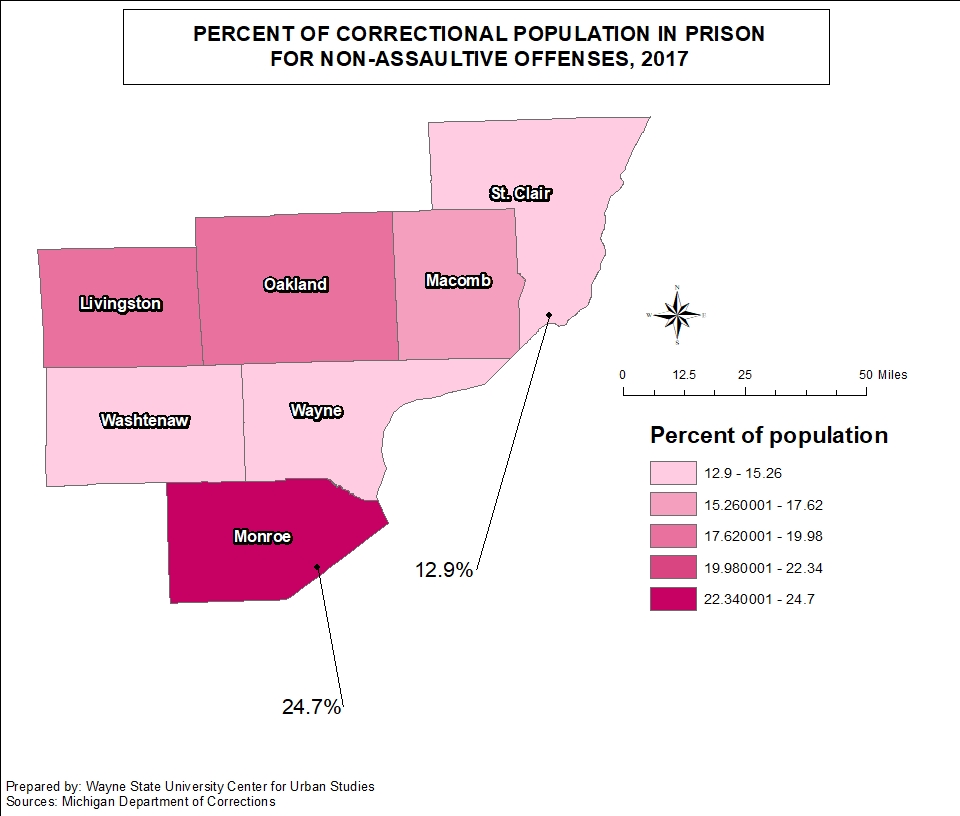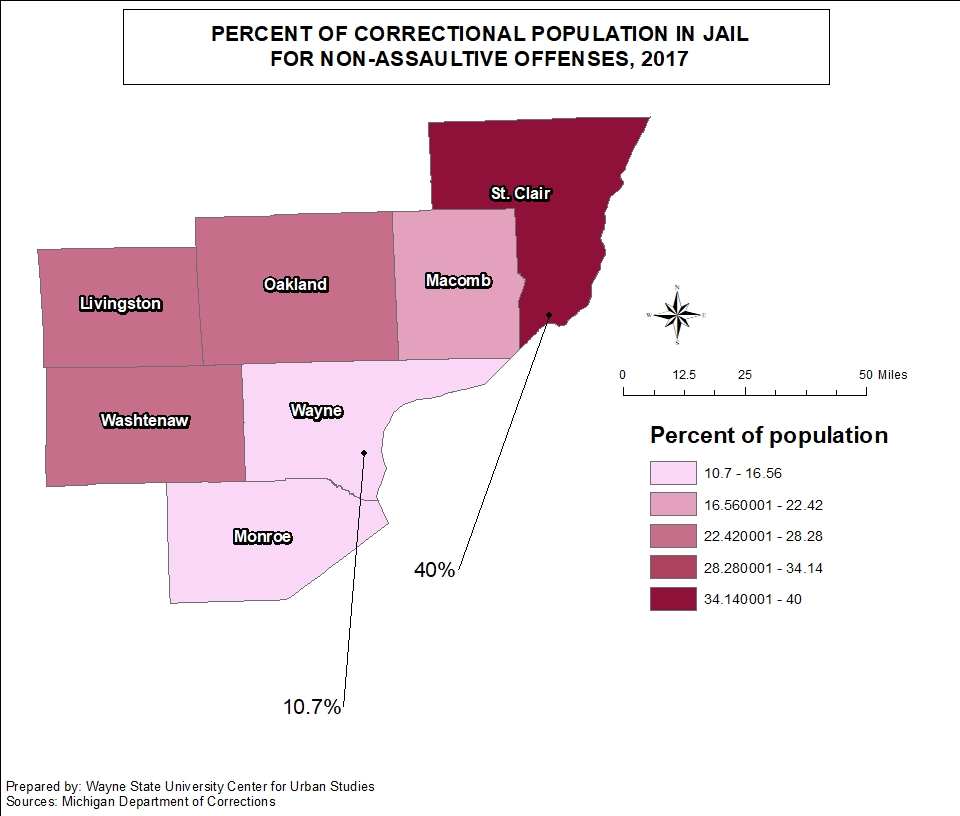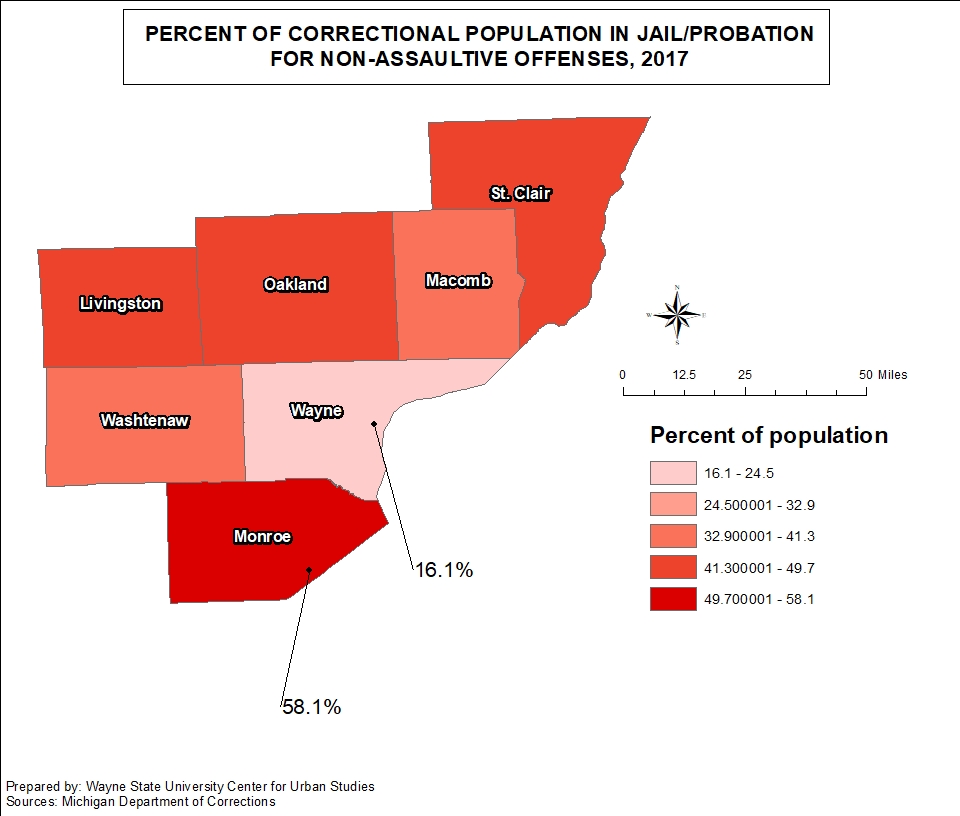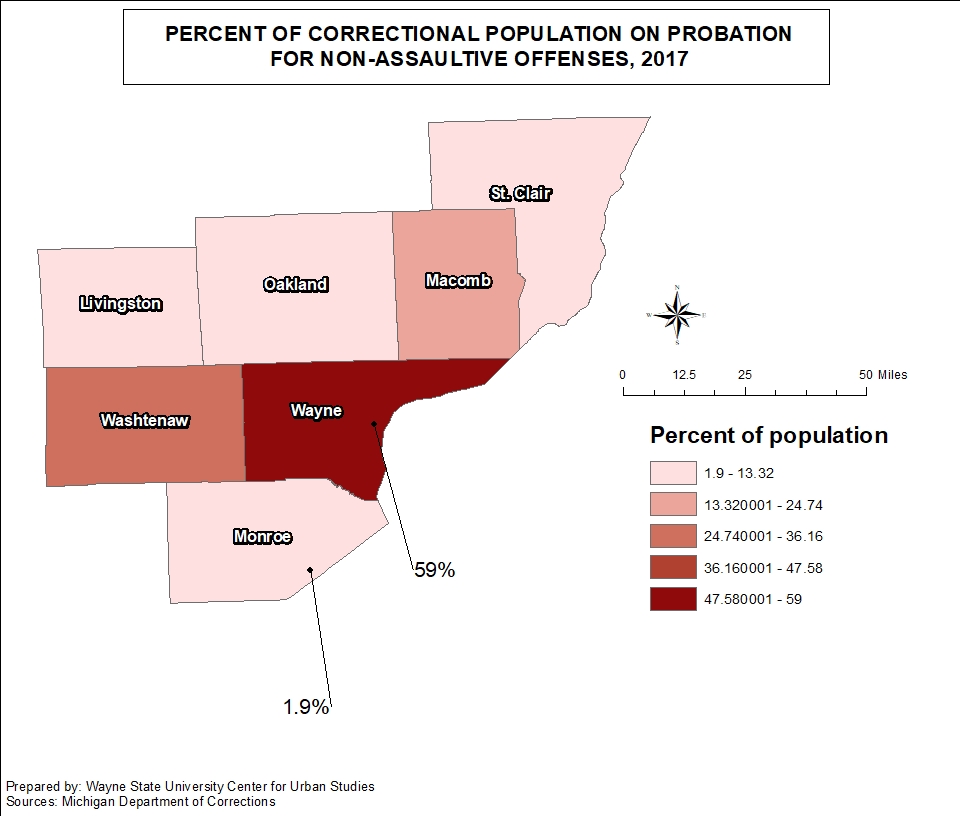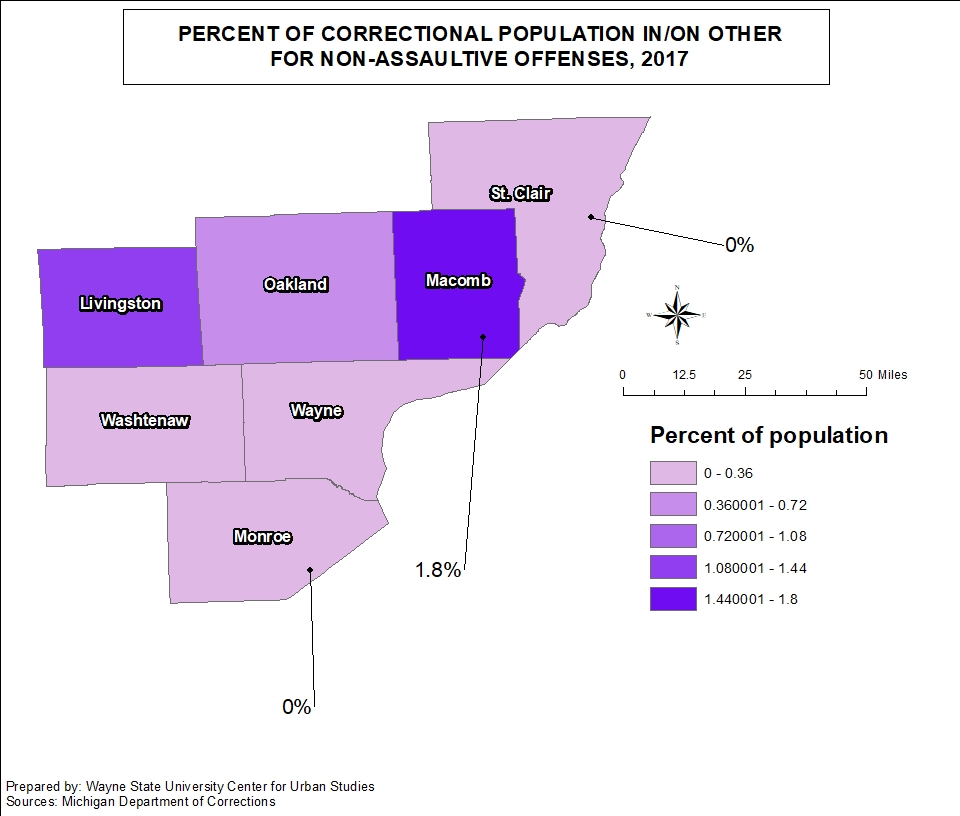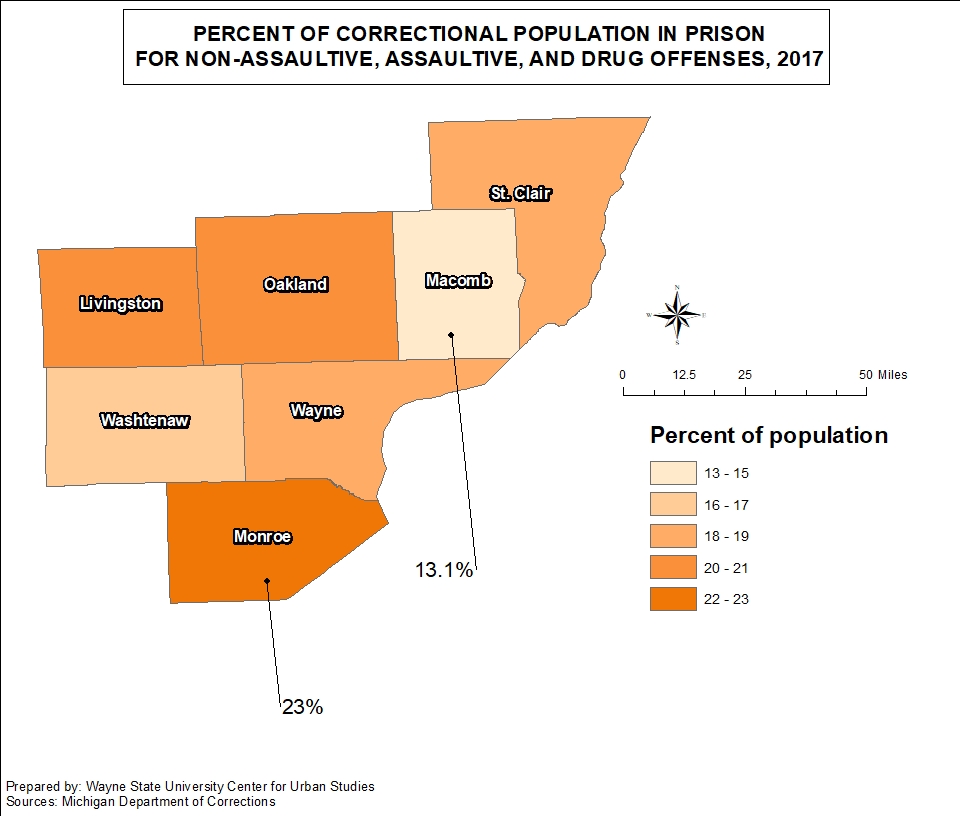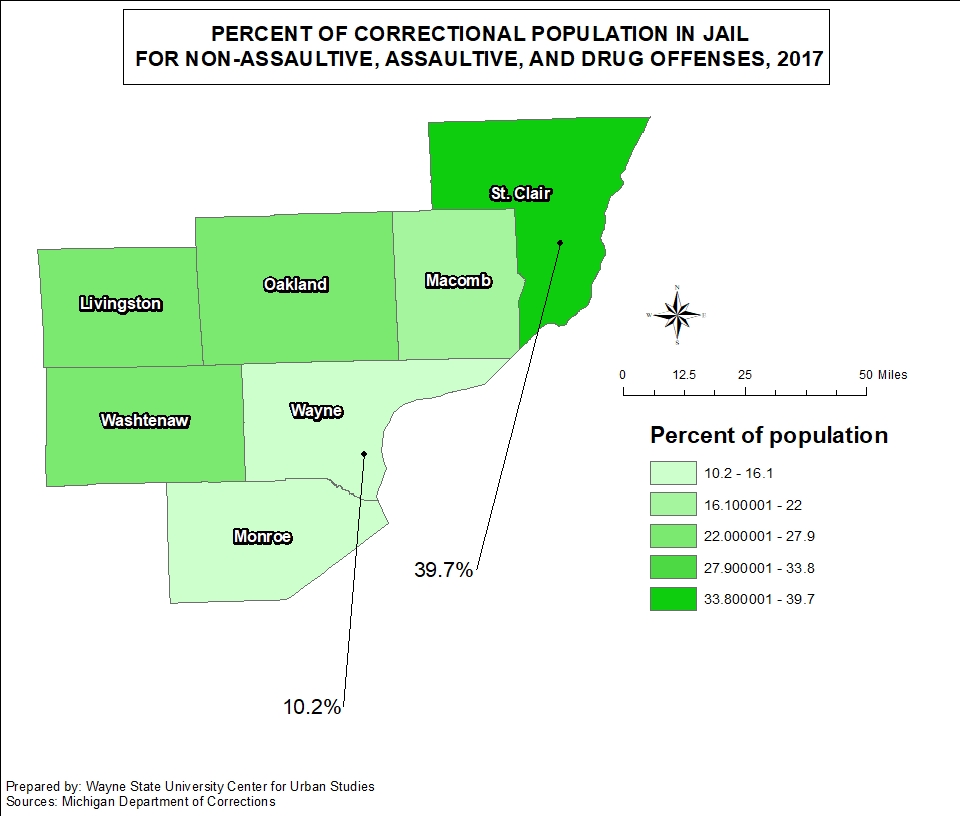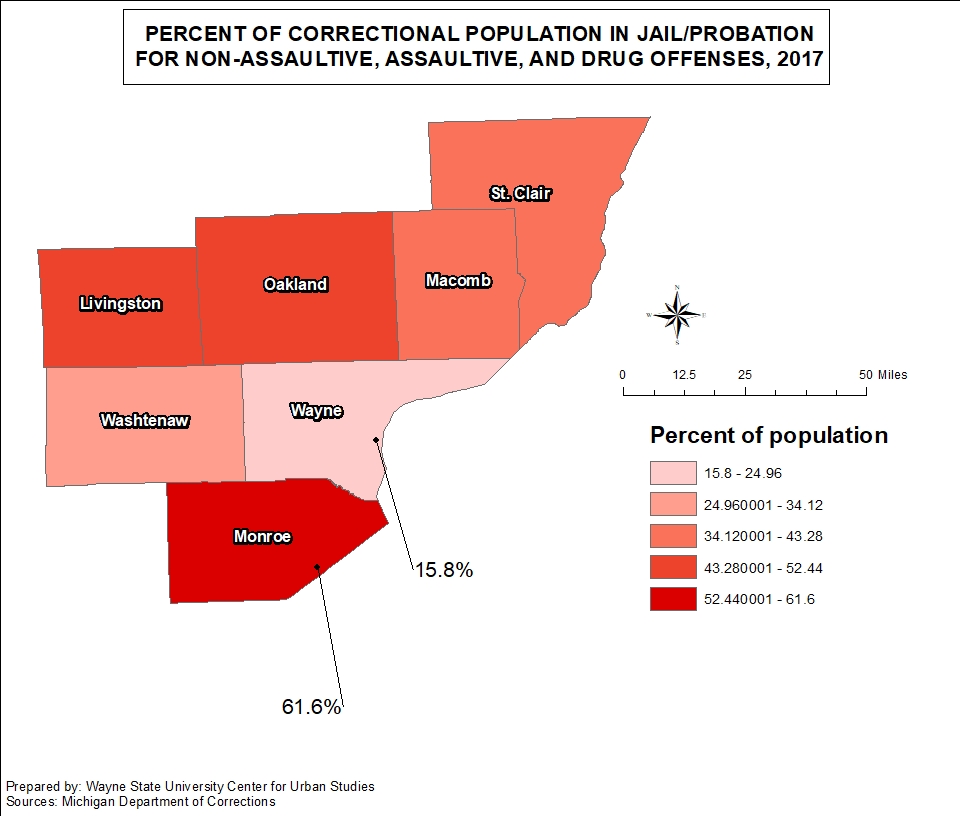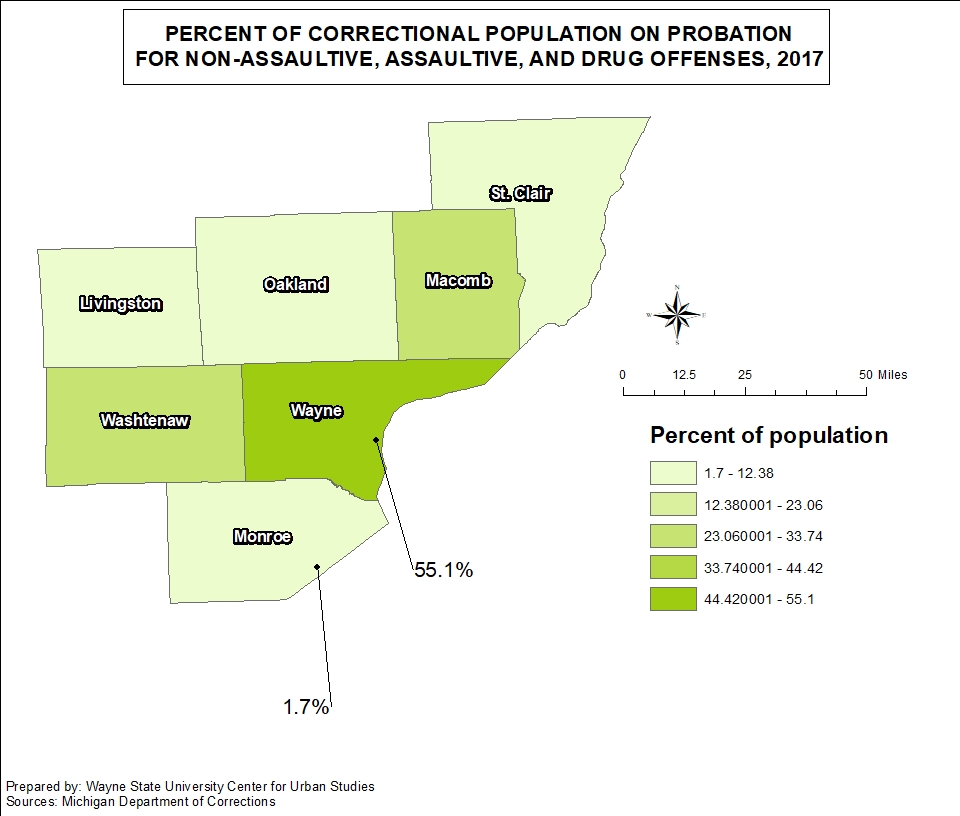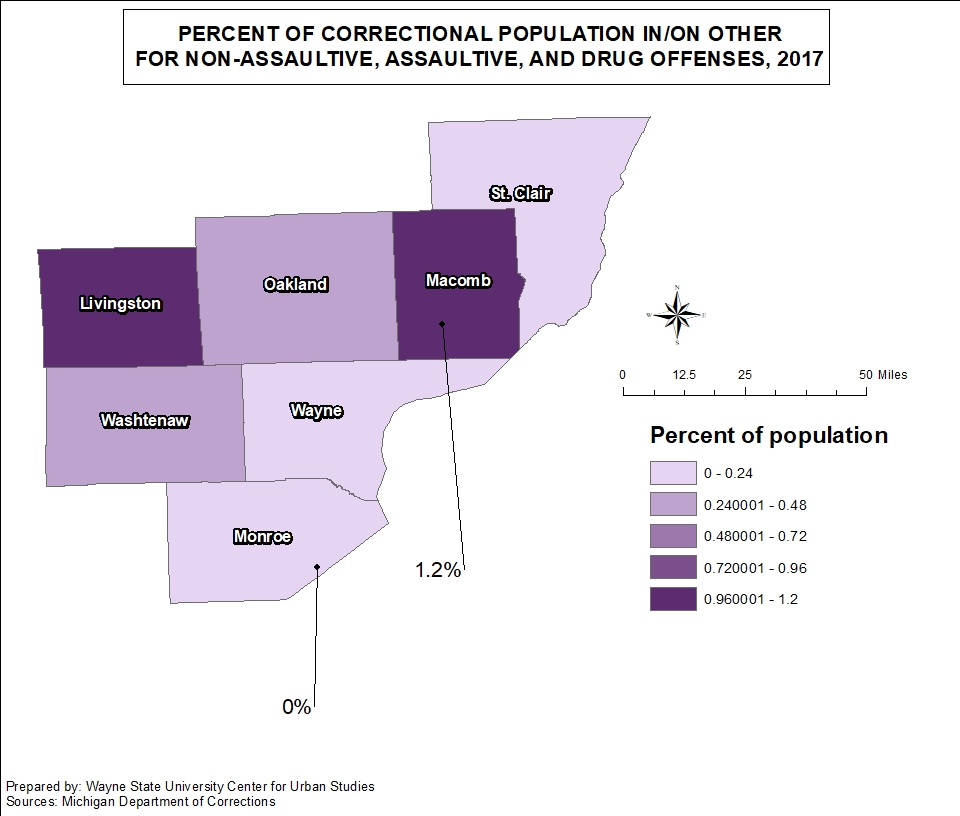When examining only felony drug offenders as part of the 2017 Michigan Department of Corrections annual report, St. Clair County had highest percentage of individuals who were sentenced to prison at 19.5 percent. Monroe and Oakland counties were the only other two counties regionally to have more than 10 percent of felony drug offenders sentenced to prison in 2017. Monroe County had 13 percent of felony drug offenders sentenced to prison and Oakland County had 12 percent. Macomb County had the lowest percentage of felony drug offenders sentenced to prison at 3.6 percent. In Wayne County 5.7 percent of felony drug offenders were sentenced to prison.
For the jail category, St. Clair County again had the highest sentencing rate for felony drug offenders at 40.1 percent, with Washtenaw County having the second highest at 31.4 percent. Macomb and Oakland counties also had more than 20 percent of felony drug offenders sentenced to jail in 2017. Wayne County had the lowest percentage of offenders sentenced to jail at 14.6 percent. For the jail/probation category Wayne County also had the lowest percentage of felony drug offenders sentenced at 16 percent; Washtenaw County had the second lowest percentage of offenders sentenced at 31.4 percent. In contrast, Monroe County had the highest percentage of felony drug offenders sentenced to jail/probation at 71.9 percent.
Remaining in line with trends we’ve seen from Wayne County thus far in this series, of the felony drug offenders in Wayne County in 2017, 63.5 percent were sentenced to probation. Of all the sentencing options, this was clearly the most highly utilized for felony drug offenders in 2017. Macomb and Washtenaw counties both had 31 percent of its felony drug offenders sentenced to probation in 2017, nearly half of the percentage sentenced in Wayne County. Monroe County had the lowest percentage of felony drug offenders sentenced at 2 percent.
None of the counties in the region sentenced 1 percent or more of the felony drug offender population to community service, restitution, fines and costs.

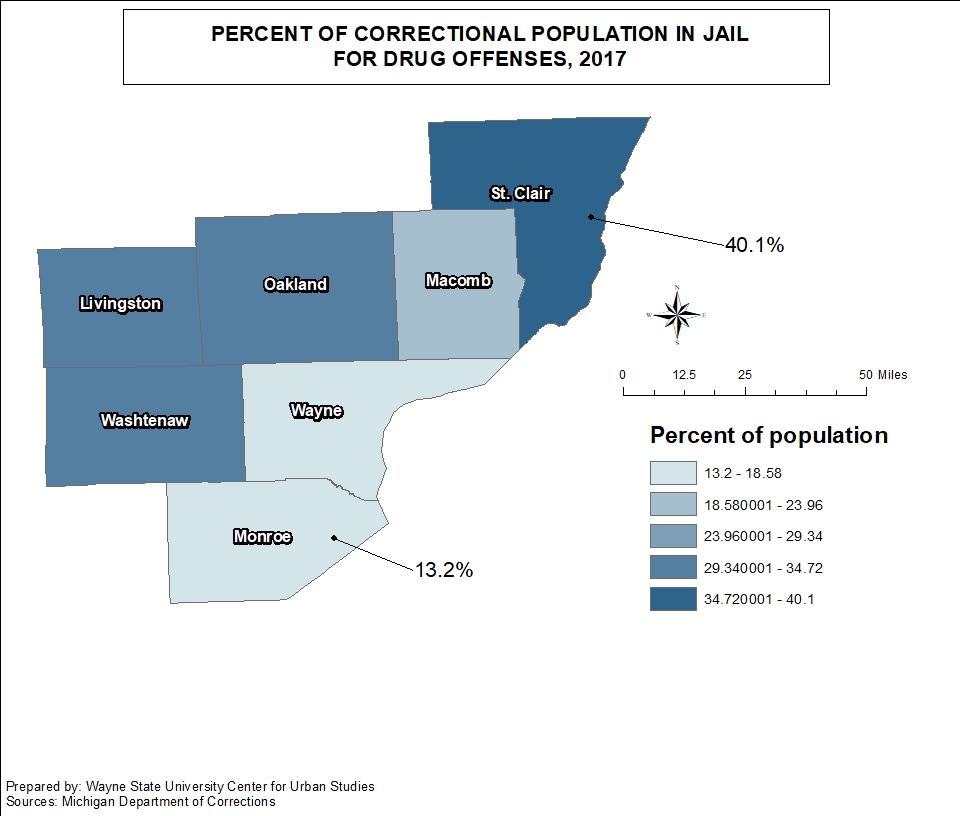
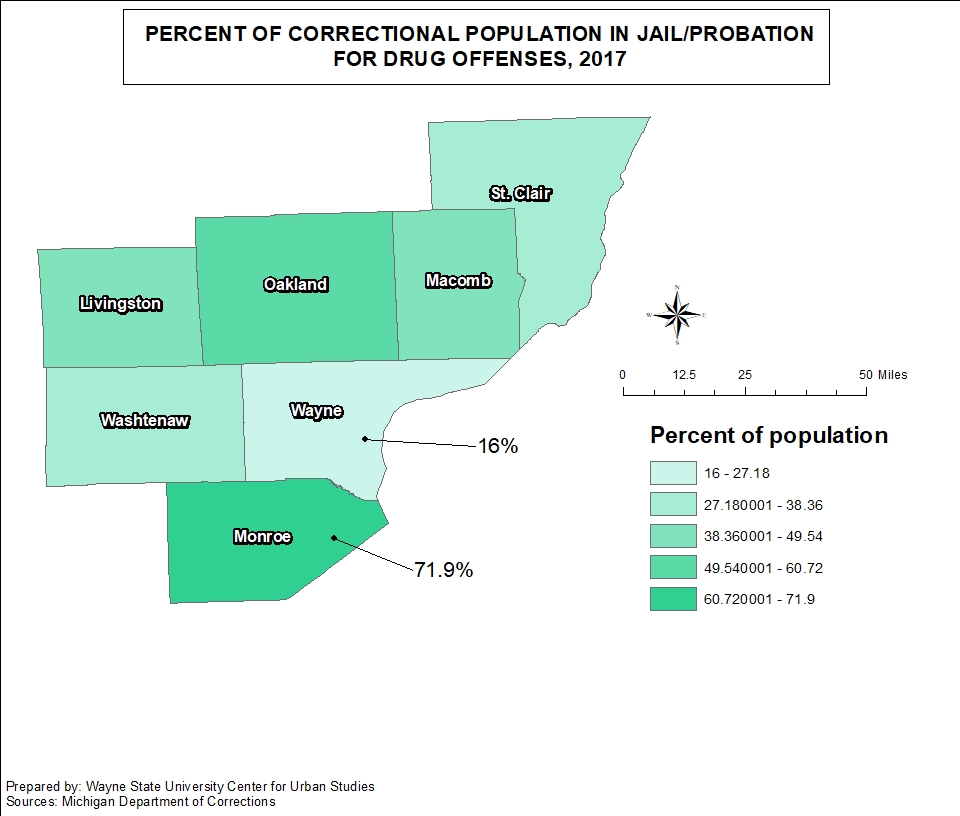
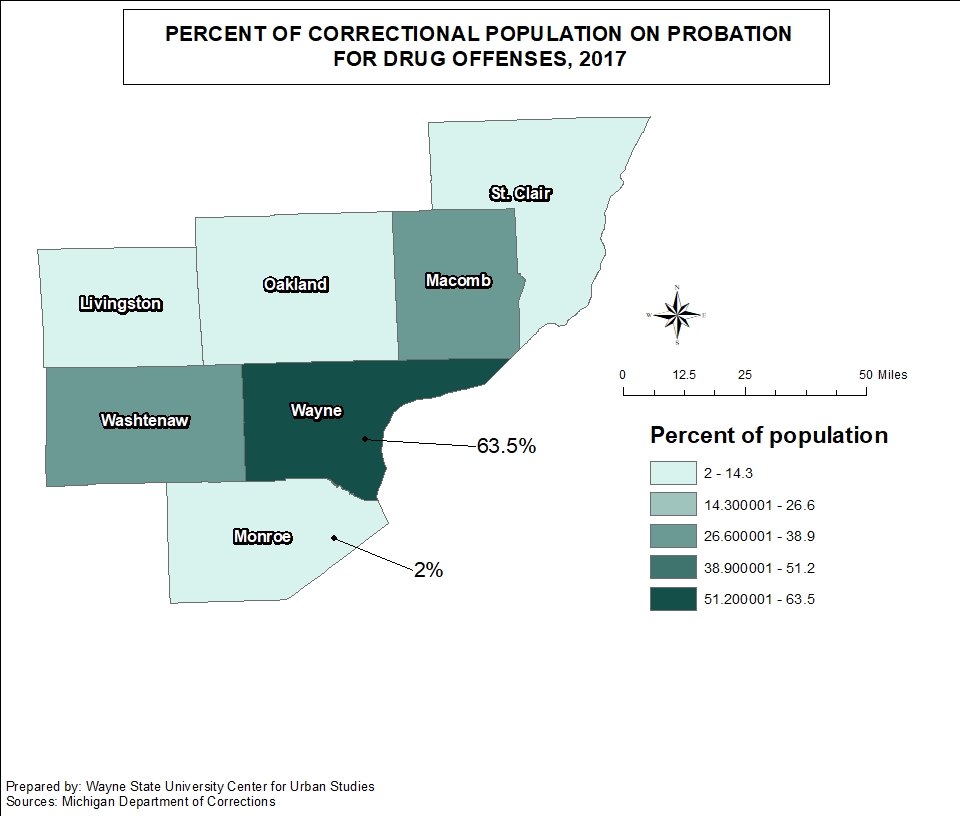
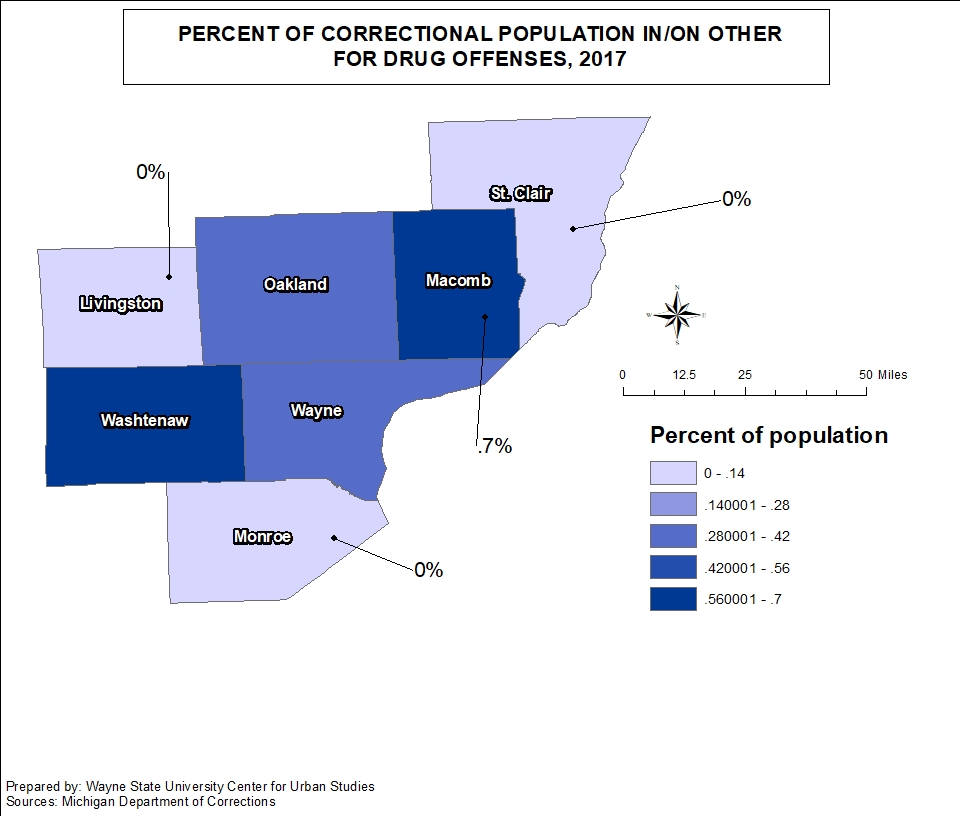
As the data shows, jail/probation sentences tended to be the most common for felony drug offenders in Southeastern Michigan, with the exception of Wayne County, where just probation was the most common.
